How the coronavirus crisis and social isolation is tearing at country footy – the glue that held rural communities together
Footy is the glue that holds country communities together, so what happens when that is taken away? Reece Homfray spoke to clubs from Bordertown to Bute, Kimba to Kalangadoo and Waikerie to find out how they’re feeling.
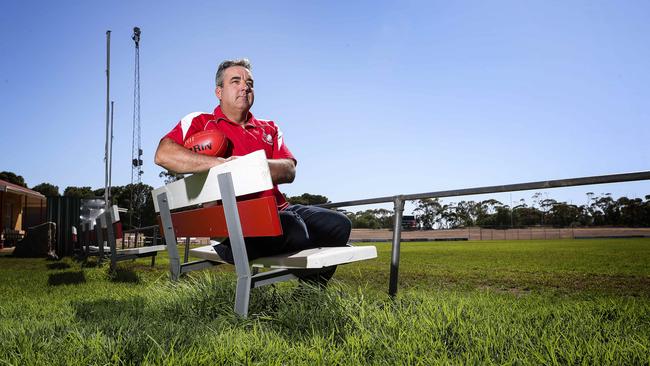
Country
Don't miss out on the headlines from Country. Followed categories will be added to My News.
Social distancing is nothing new for Yorke Peninsula farmers like Jarrad Cock and the Gill brothers who can quite easily go a day on the tractor without seeing another soul.
But what gets them through those long days is what happens on Tuesday and Thursday nights, Saturdays – and quite often Saturday nights as well – at their local footy club.
Or sadly, what used to happen.
Before this wretched coronavirus invaded just about every aspect of our lives and brought the world to a standstill, footy and netball clubs have been the glue that held rural communities together.
They’ve been joyous places for kids to play and families to meet and places of solace for men to support each other while battling crippling droughts and devastating frosts.
But now even that has been taken away, and for how long?
On a normal Thursday night just gone, Jarrad reckons they would have served 100-plus meals at the Bute clubrooms. Two weeks ago they did 130 with football and cricket training overlapping.
This week the players would have trained, the kids would have been running around, the kitchen would have been crowded and fridges emptied with the unmistakeable sound of cold cans being snapped open.
The AFL might be counting the cost of the COVID-19 wipe-out in billions of dollars but in the bush they’re counting it in chicken schnitzels and conversations.
The Yorke Peninsula Football League was set to start next weekend on April 4 but like every other community league that’s been suspended until May 31. Right now that seems like a dream result. Most clubs the Sunday Mail spoke to this week admit they’re doubtful they’ll play in 2020 at all.
Jarrad is a fourth generation wheat, barley and lentil farmer, and as Bute Football Club president, says he’s concerned about the impact of removing the bond that country sport provides.
“Social interaction builds strong relationships with other families and like many small towns we are certainly not alone in dealing with this, and I feel sorry that we aren’t able to come together and interact when we need each other the most,” he said.
“Everyone’s focus was on the football and netball season and now, they’re just dumbfounded … it seems like an eternity since we’ve seen each other and it’s only been two weeks.
“The footy club will just sit there un-used like a white elephant.
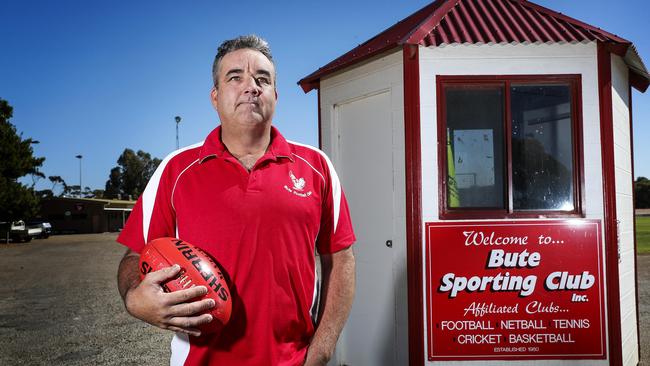
“It’s a bit of a ghost town, even our ag (agriculture) meetings have been cancelled and everyone is really worried about the local pub because they were one of the few things still open.
“But as a community we will definitely play our part in obeying protocols because the sooner we can get on top of this terrible time the sooner we can get back to doing what everyone loves the most.”
This season was the first in nearly 20 years that Bute has been able to field all four grades – seniors, reserves, junior and senior colts – having previously combined with Paskeville for the lower grades.
“It would have been the first year all four grades pulled on the (red and white) Big V,” Jarrad said.
“It’s been a bloody big slog over summer trying to make this happen and this is quite deflating.”
Brothers Josh and Alex Gill are mixed grain farmers and involved with the footy club at Bute where Josh is the club’s sponsorship manager and a league umpire.
“It’s a very strange time,” Josh said.
“The footy club is huge here, it’s the lifeblood of the community, it brings people together and gives you something to focus on.
“A few weeks ago we were at an SANFL umpires meeting chatting about the year and now it’s all put on hold.
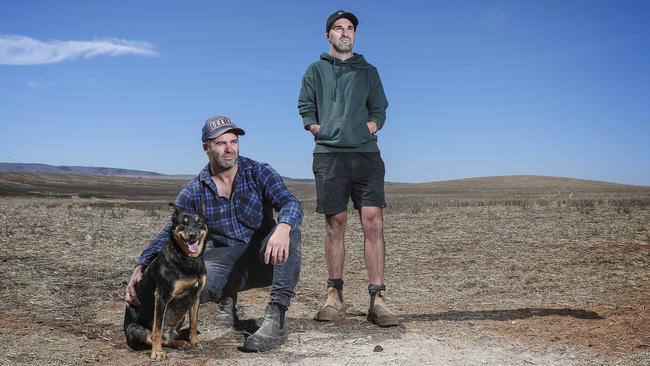
“People aren’t really sure what to do with themselves, but the benefit of being in the country is we do have big backyards, we can ride a motorbike on our property and still not see anyone.
“You could even go to the small shop here and still not see anyone but you see the pub closed and you feel for the staff as well.”
Sam Trengove, 36, is an agronomist on the Yorke Peninsula who plays for Bute and posted a message in the players’ group chat this week.
“Just saying I’m thinking about everyone, we’ll all be affected differently and we can’t check in on each other in person but we will find ways to support each other outside of that,” he said.
“And when all this is done we’ll have a new appreciation of the privilege of playing footy and give us a new perspective on it.
“It’s something you take for granted, going to training, running around with your mates and having a few beers, and checking in on each other at the same time.
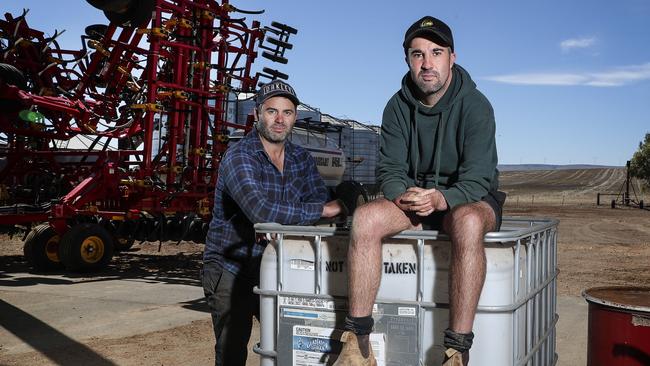
“It was your main social activity and to not have that now will be hard on the community.”
It’s a familiar story across the state where at Bordertown they’ve got no footy and have also been forced to cancel the SA Masters Games they were helping to host in April.
“I don’t know what I’m doing to do with myself, all those jobs around the house I suppose,” Bordertown Roosters president Mark Verco said.
“We had training scheduled the night the SANFL announced the decision to suspend the competition so we cancelled that, told everyone the news and had a few cans.
“It’s frustrating because we’ve been lingering down the bottom of the ladder the last couple of seasons and have a new coach and a few new players, and they’ve been training their guts off since November.
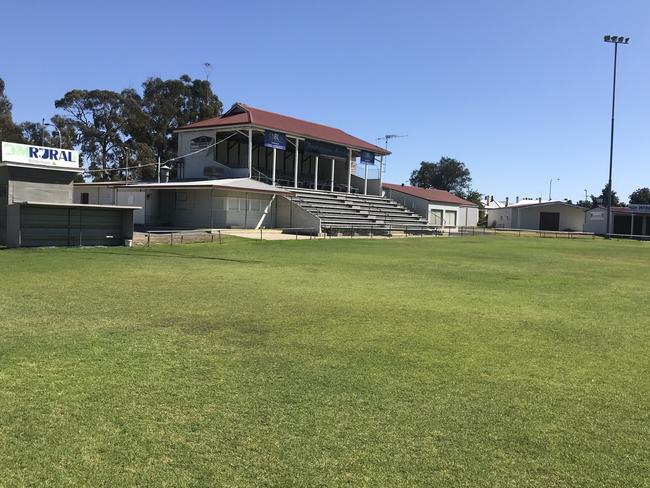
“We had a trial game earmarked for last weekend everyone was up and about, and the poor coach, it felt like pulling a dagger out of his heart all the work he’d put in to get the guys where they are.
“The biggest feedback I’ve had is about our Thursday night teas – the players were saying ‘crikey I’m going to have to cook tea’ – but we get quite a following for that, half of the retirement village comes down because the meals are cheap so it’s not just the footballers and netballers.
“Definitely we’ll feel the bar sales and food taking. There are still costs involved to have the club, we maintain the oval with the cricket club, and have utility bills as well but we are all volunteers.
“We did a bit of fundraising before the season so we’re very lucky we did that.”
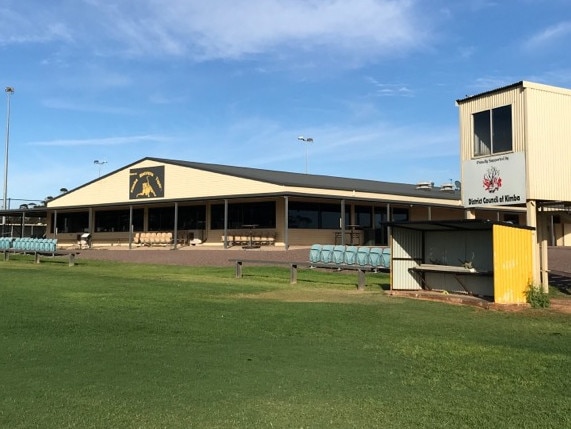
At Kimba, Bert Woolford is the former club president and now the Eyre Peninsula zone representative which has made the call to scrap the interleague carnival which was set for after a May 31 resumption.
“Everyone is stunned really,” he said.
“I don’t think the economic side will worry clubs other than it being a missed opportunity but the social side of it is going to be a really sad thing, because it’s what we do in the country communities – we go to the footy on Saturday and catch up with all your mates – and that won’t be happening.
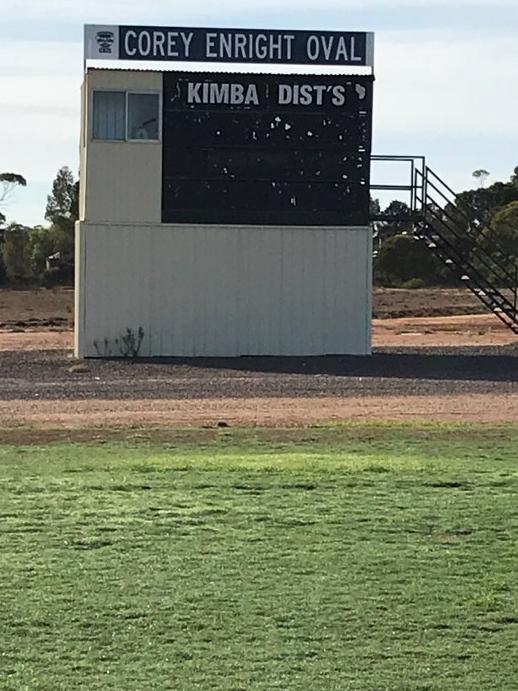
“I was talking to the (Tigers) coach this morning and everyone is in a bit of limbo because we’re talking about ‘what ifs’, we don’t know what’s going to happen.
“You (media) are normally ringing up about who’s in, who’s out and how are we going to go? Well now we’re not going to go … we can’t even watch footy (AFL) on TV.
“But there’s nothing we can do about it and obviously health is front of mind.”
Kalangadoo Football Club president Adam Box said his club was focusing on keeping everyone connected and informed.
“We’re trying to keep in contact with players, supporters, sponsors, community members as much as possible through social media at the minute,” he said.
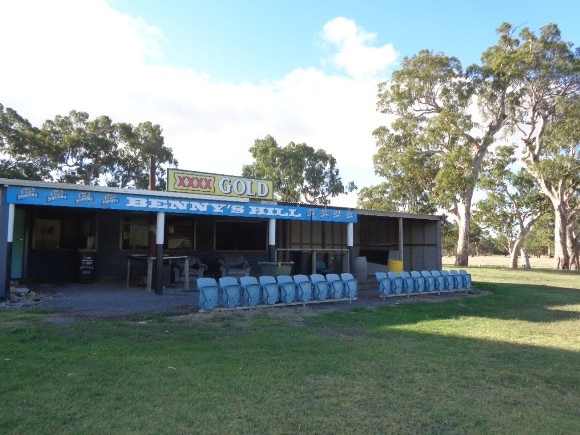
“We sent out a statement from the footy, netball, junior and community presidents so people knew we were thinking about them and were here for them if they needed anything.
“We talk about isolation but we don’t want that to be social isolation, and we haven’t done it yet but at some stage electronically we’ll get together and start working through how we stay connected and together.”
Waikerie Magpies president Brendan Sidhu said the club’s coaches were giving players individual fitness programs to follow on their own.
“The footy club is a big part of the community, a lot of people are involved with it, it’s challenging times,” he said.
“You almost get the feeling that there won’t be a season, we had a (league) board meeting a week-and-a-half ago but so much has changed even since then.
“Even if we do crank up will we be allowed to have people through the gate? And as little country clubs we can’t afford not to have people to watch.
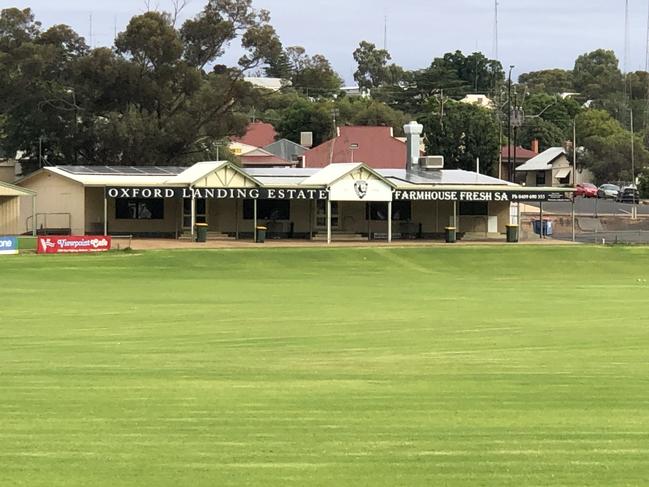
“We’re lucky the council does most of the ground maintenance, we pay rent, but we make our money through the clubrooms selling beers.”
At Bute, the sporting club spent $28,000 in the past year – including $16,000 over summer – to keep the grass oval going during the drought. Their annual power bill is about $5000 and the fridges are still running, and they’ve just spent $8000 on new guernseys for all four grades.
The Roosters did a sponsorship drive over summer and visited businesses in person. Most of them are paid and the club is now preparing to contact them to see if they want their money back.
“We’ll wait to see if things settle down a bit and have a meeting but it just seems to be escalating,” Jarrad said.
The SANFL has created a ‘club hub’ and distributed information to all community football leagues with health advice on how to slow the spread of the virus, management tools to ensure clubs remains sustainable, and mental health support particularly for those dealing with social isolation.
“Clearly having no football or netball is going to be a significant change to the fabric of a community weekend in regional South Australia,” SANFL community football league manager Tom Hurley said.
“Clubs and leagues need to do what they can to retain that connection with people and we will be providing tools and information on how they can do that remotely.
“Firstly it’s things like management tools for club sustainability and mental health and directing people who might require support in that space to the right avenues.”

